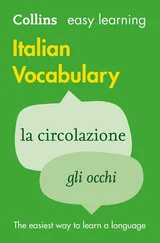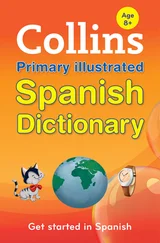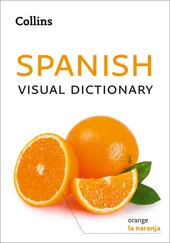When asking for something, you can use Mi dà…?( Can I have…? ) or Potrebbe darmi…?( Could I have…? ). These come from the verb dare( to give ). For more information on dare, see here.
| Mi dàuna piantina della metropolitana, per favore? |
Can I havea map of the underground, please? |
| Mi dàun abbonamento settimanale, per favore? |
Can I havea weekly pass, please? |
| Potrebbe darmil’or a rio ferrovi a rio, per favore? |
Could I havea train timetable, please? |
Often, just as in English, you can leave out Mi dà…?or Potrebbe darmi…?and just ask directly for what you need.
| Unbiglietto di sola andata, per favore. |
Asingle, please. |
| Unposto vicino al finestrino, per favore. |
Awindow seat, please. |
| Unacabina per 2 persone, per favore. |
Acabin for two, please. |
| Trebiglietti andata e ritorno per Como. |
Threereturns to Como. |
When you want to find out if something is available, or if someone has something, use Ha…?( Have you got…? ) or, more informally, Hai…?. Use Avete..?if you are asking more than one person. These come from the verb avere( to have ). For more information on avere, see here.
| Hal’or a rio degli au tobus? |
Have You gotthe bus timetable? |
| Hauna cartina che mostra come arrivarci, per favore? |
Have You gota map that shows how to get there, please? |
| Hail’ora, per favore? |
Have you gotthe time, please? |
| Avetel’or a rio dei traghetti? |
Have you gotthe timetable for the ferry, please? |
If you are asking someone if they can do something for you, you should use Può…?( Can you…? ), although puòcan also be left out.
| Mi puòavvisare quando stiamo per arrivare alla fermata per il museo? |
Can Youtell me when we’re near the museum stop? |
| Mi puòlasciare qui, per favore? |
Can Youdrop me here, please? |
| Ci puòportare all’Hotel Duomo, per favore? |
Can Youtake us to Hotel Duomo, please? |
| Ci mostradov’ è sulla piantina? |
Can You show uswhere it is on the map? |
| Le dispiacerebbescr i vere l’indirizzo? |
Would You mindwriting down the address? |
| Le dispiacerebbelasciarmi all’albergo? |
Would You minddropping me at my hotel? |
| Le dispiacerebbemostrarci dov’ è ? |
Would You mindshowing us where it is? |
SAYING WHAT YOU LIKE, DISLIKE, PREFER
You will want to be able to discuss what you like and dislike with your Italian-speaking acquaintances. To say what you like, use mi piace( I like ) with singular nouns and mi piaccionowith plural nouns. To say what you don’t like, use non mi piaceor non mi piacciono( I don’t like ) These come from the verb piacere.
| Mi piaceviaggiare in treno. |
I liketravelling by train. |
| Mi piaccionoqueste stradine di campagna. |
I likethese country roads. |
| Mi piace moltoviaggiare in nave. |
I really liketravelling by boat. |
| Mi piace tantissimoviaggiare in a e reo. |
I loveflying. |
| Non mi piaceguidare sulla destra. |
I don’t likedriving on the right. |
| Non mi piaceguidare di notte. |
I don’t likedriving at night. |
| Non mi piaccionole m a cchine col c a mbio autom a tico. |
I don’t likeautomatics. |
| Odioi motorini. |
I hatescooters. |
| Odiole cartine! |
I hatemaps! |
| Detestodover chi e dere indicazioni. |
I hatehaving to ask for directions. |
| Ti piaceviaggiare in a e reo? |
Do you likeflying? |
| Ti piaceviaggiare da sola? |
Do you liketravelling by yourself? |
| Le piacequesta regione? |
Do You likethis area? |
| Le piaccionoi viaggi organizzati? |
Do You likeorganized tours? |
If you want to say what you prefer, use preferisco( I prefer ) or preferirei( I’d prefer ). These come from the verb preferire( to prefer ). For more information on -ireverbs like preferire, see here.
| Preferiscoviaggiare in a e reo. |
I prefer tofly. |
| Preferiscopr e ndere l’autostrada. |
I prefer togo on the motorway. |
| Preferireiviaggiare col bel tempo. |
I’d rathermake the journey in good weather. |
| Preferireisedermi vicino al finestrino. |
I’d rathersit next to the window. |
| Preferireinon lasciare qui la mia m a cchina. |
I’d rathernot leave my car here. |
| Preferiremmoguidare di giorno. |
We’d ratherdrive in the daytime. |
Here are some key phrases which you are likely to hear when you’re travelling about.
| Pr o ssima fermata: … |
Next stop: … |
| Il treno diretto per Bologna centrale parte dal bin a rio tre. |
The train for Bologna centrale leaves from platform three. |
| Si deve convalidare il biglietto in stazione. |
You must stamp your ticket at the station. |
| Biglietto, prego. |
Ticket, please. |
| Le dispiace se mi siedo qui? |
Do you mind if I sit here? |
| Continui dritto fino al sem a foro. |
Go straight on till You get to the traffic lights. |
| Prenda la seconda a sinistra. |
Take the second turning on the left. |
| È difronte alla cattedrale. |
It’s opposite the cathedral. |
| È vicin i ssimo. |
It’s very near. |
| Ha sbagliato strada. |
You’ve gone the wrong way. |
| Ci si può andare a piedi. |
It’s within walking distance. |
| È fra tre fermate. |
It’s three stops from here. |
| Imbarco immediato, uscita 3. |
Now boarding at gate 3. |
Lifestyle Tips
Читать дальше












